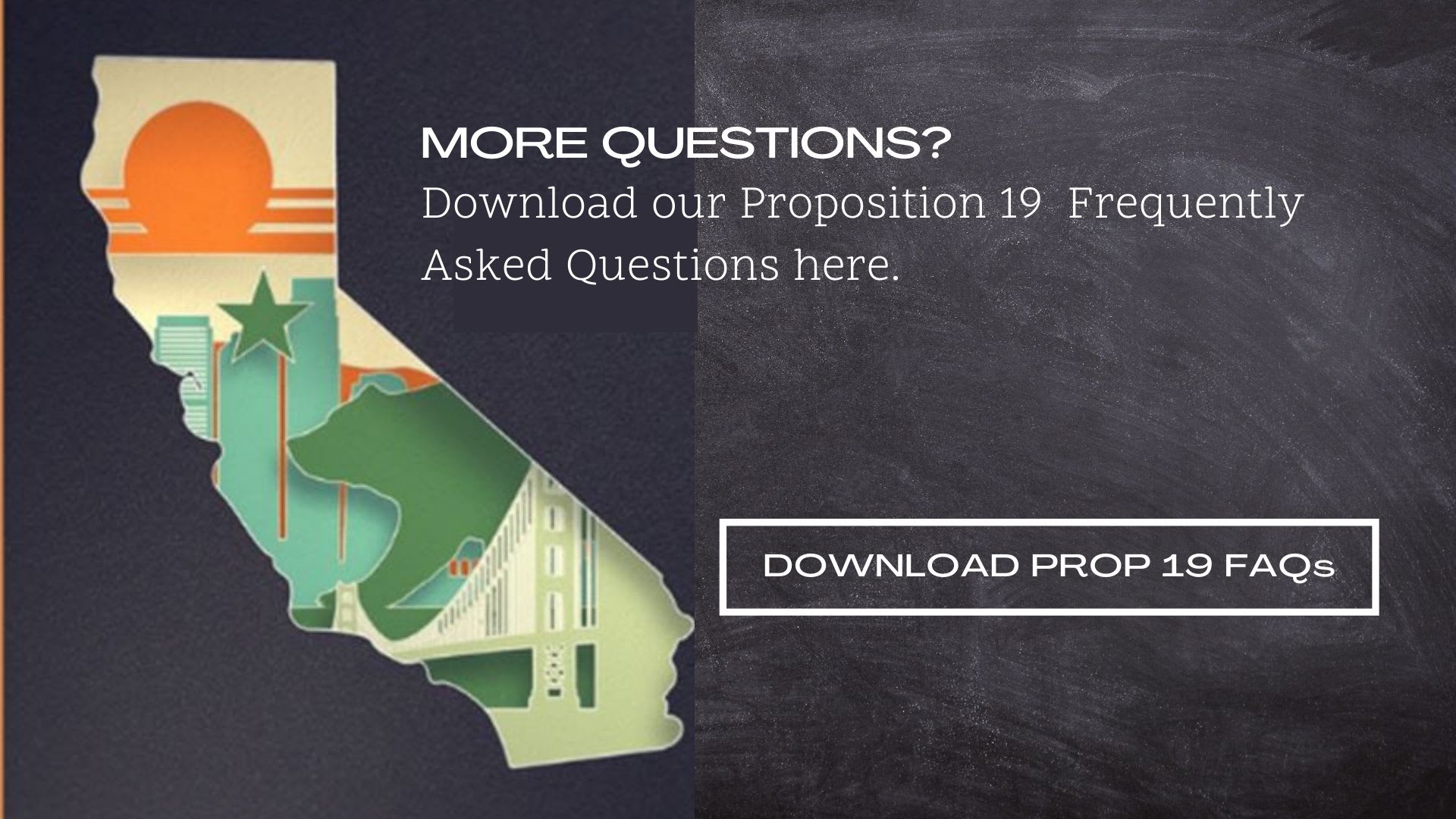In this blog post we explore the second part of California’s Proposition 19, the new rules that apply to the taxation of inherited property transfers. These rules go into effect on February 16, 2021.
What is Proposition 19 and how does it apply to homeowners in California?
Proposition 19 is the Property Tax Transfers, Exemptions, and Revenue for Wildfire Agencies and Counties Amendment. As this is a complex measure, and to simplify, we are exploring the Proposition in two parts;
-
Expanded property tax break rules to eligible homeowners - Read Part 1 blog post here.
-
Taxation of inherited property transfers

II. TAXATION OF INHERITED PROPERTY TRANSFERS
The second part of Proposition 19 narrows the rules allowing properties to pass from parent to child and grandparent to grandchild without an increase in the property tax bill.
What has changed?
Inherited homes that are not used as principal residences, such as second homes or rentals, are now required to be reassessed at market value when transferred.
What has changed?
Inherited homes that are not used as principal residences, such as second homes or rentals, are now required to be reassessed at market value when transferred.
When can the taxable value be transferred?
The taxable value can be transferred:
The taxable value can be transferred:
-
To only those properties used as a primary home or farm by the child or grandchild.
-
If homeowners’ exemption if filed within one year of transfer.
-
If the value of the property is less than $1M over the original tax basis.
-
If the property value, at the time of transfer, is more than $1M over the original tax basis, some upward adjustment in assessed value would occur.

How does this affect a homeowner who has inherited a property from their parents or grandparents?
Prop 19 eliminated the parent-to-child and grandparent-to-grandchild exemption in cases where the child or grandchild does not use the inherited property as their principal residence but instead uses the property as a rental house or a second home.
When the inherited property is used as the recipient's principal residence but is sold for $1 million more than the property's taxable value, an upward adjustment in assessed value would occur.
If the property is more than $1M over the original tax basis, what is the new taxable basis?
The new taxable basis will be the assessed value of the property at time of transfer minus $1M.

Where may a claim to transfer a tax basis be made?
Claims may be made with forms provided by the local county assessor’s office.
Visit San Diego County Property Tax Services for more information.
Visit San Diego County Property Tax Services for more information.
If you have additional questions, such as tax base change due to a refinance, or if your home is held in a Trust, please download our Frequently Asked Questions here.
If you are looking to downsize or upsize, don’t let taxes trap you in a home that no longer works for you! You may be able to transfer those low property taxes to your new home.
Contact us today to develop a real estate strategy that works for you.
Sue, Gina & The De Legge Team
DRE # 01304408 | DRE #01746528

Source: California Association of REALTORS® Proposition 19 Quick Guide
Source: California State Board of Equalization
Sue, Gina and The De Legge Team are not attorneys or tax advisors and the information contained in this article should not be considered tax or legal advice. Whether you are buying or selling a property and have legal or tax questions, we encourage you to consult your legal and tax advisors.
Want to learn more? Visit Prop19
Sue, Gina and The De Legge Team are not attorneys or tax advisors and the information contained in this article should not be considered tax or legal advice. Whether you are buying or selling a property and have legal or tax questions, we encourage you to consult your legal and tax advisors.
Want to learn more? Visit Prop19




































































